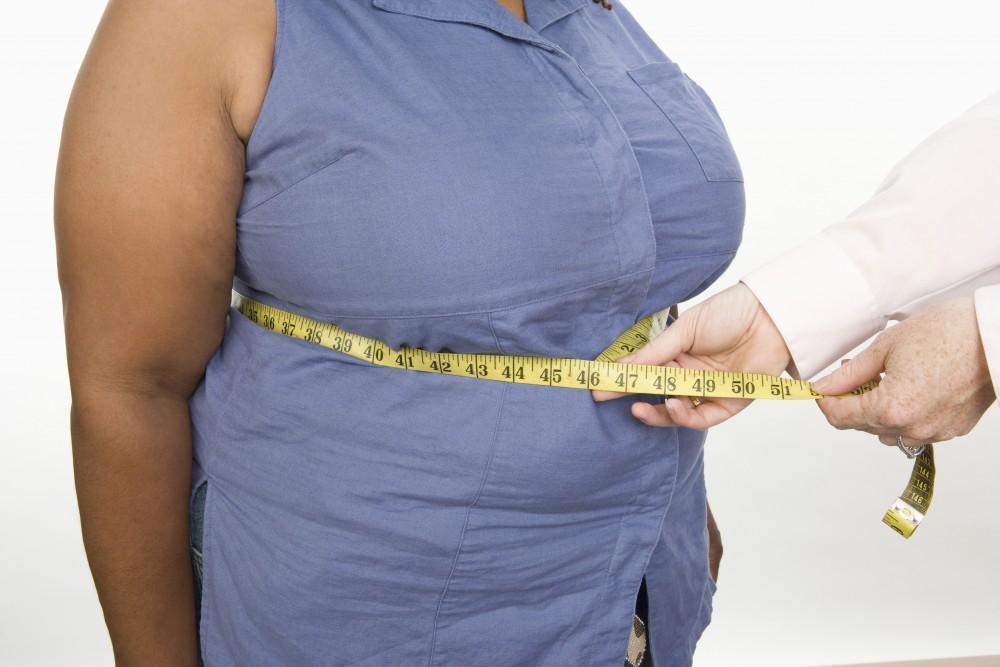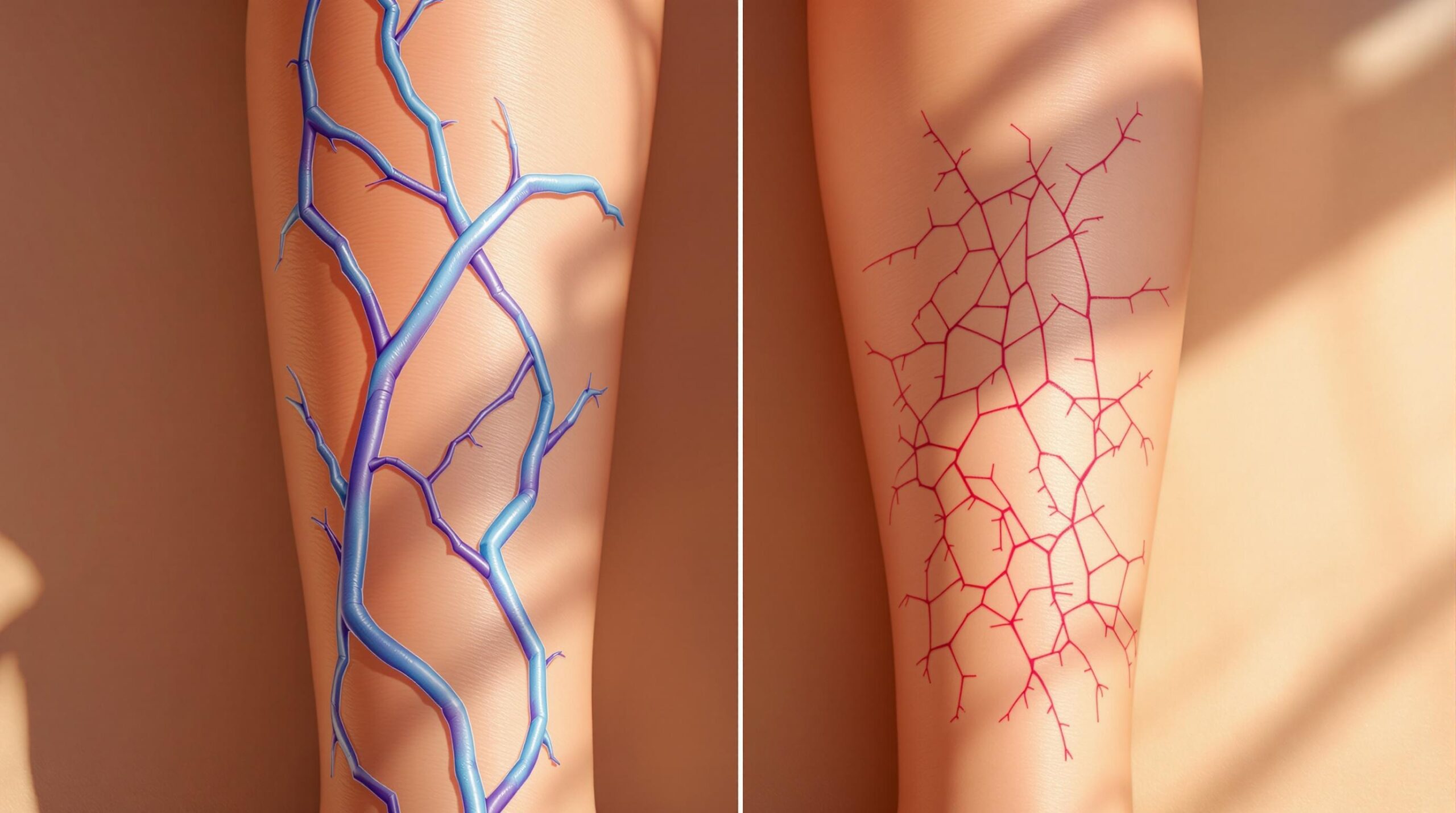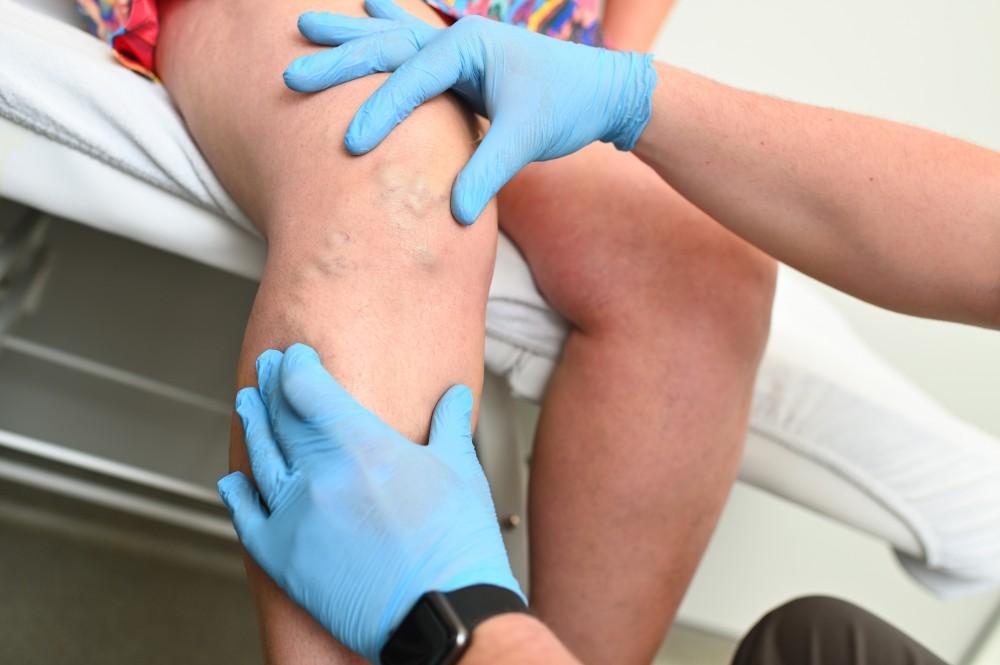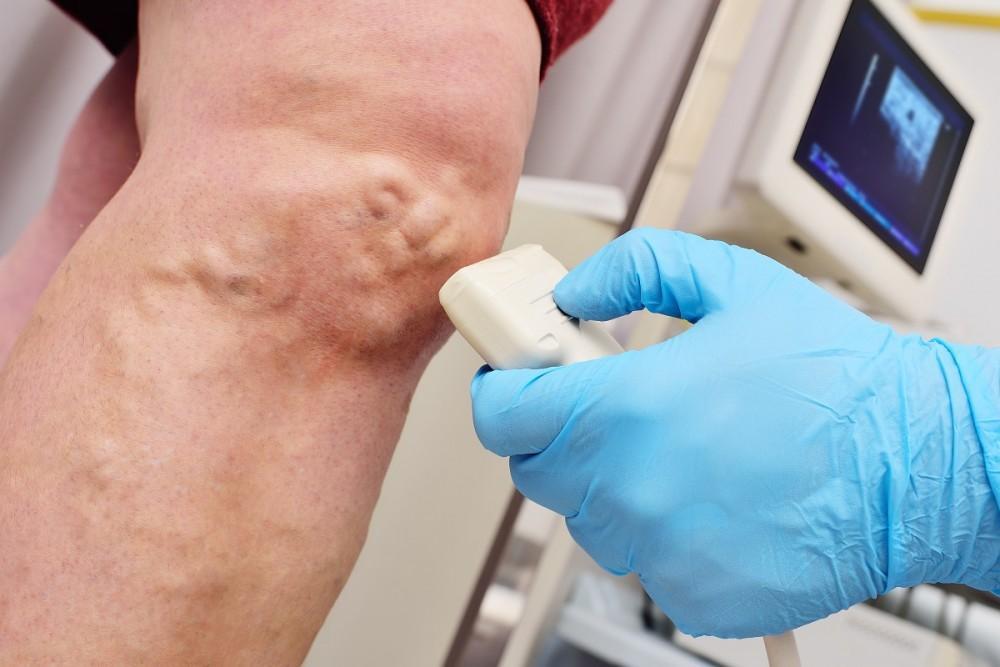After you’ve been on your feet for a while, do your legs start aching and even burning? Are your feet and ankles swollen? These are some of the signs you may be developing vein problems. Problems in your veins, especially your leg veins, occur more often in adults over 50 years old, and more often in women than in men.
How do vein problems develop?
Your veins are an important part of your body’s circulatory system. They carry blood back to your heart after your arteries carry it out. Veins have one-way valves that open and close to move blood toward your heart.
If the valves become damaged, they no longer work effectively. Blood flow decreases if a valve doesn’t open all the way. As a result, your blood may pool in the veins, putting pressure on the vein walls. If the valves in your veins aren’t opening and closing as they should, the blood can flow backward. The condition is called chronic venous insufficiency (CVI).
CVI can occur in both superficial veins close to your skin and deep leg veins embedded inside your leg. CVI most often occurs when you’ve had a leg injury which led to a blood clot, or if you have varicose veins.
Varicose veins are part and parcel of CVI. When the valves in your veins are damaged, the veins grow larger and can protrude from your skin in a long, twisted, raised ridge down your leg. These are varicose. Any vein close to the surface of your skin, called a superficial vein can become varicose, and cause CVI. The superficial veins in the legs are most commonly affected because standing increases pressure on those veins.
Symptoms of chronic venous insufficiency
All of the following are symptoms of CVI:
- Pain in your legs, feet, or ankles
- Swelling of your legs, feet, or ankles
- Leg cramps
- Varicose veins
- Numbness in your legs
- Itching on the legs
- Restless legs
- Legs that feel weak and heavy
- Ulcers on your legs
Chronic venous insufficiency is often painful and may become disabling. If untreated, the chronic venous disease may lead to two dangerous conditions: (1) a blood clot in a vein in your leg which can eventually travel to your heart, or (2) a pulmonary embolism, which is a blood clot in the lung. Both of these conditions are life-threatening.
How does extra weight contribute to vein problems?
If you’re overweight, you’re more likely to develop varicose veins. Along with standing for long periods, excess weight puts stress on your veins. Just as the extra pounds put tremendous pressure on your knee joints, they also put pressure on the valves in your veins. Eventually, the valves may fail.
Excess fat on the legs may hide varicose veins. Obesity can also cause CVI in veins deep inside your legs, causing painful ulcers which take months to heal.
How to treat and ease CVI symptoms
Dr. Shah uses ultrasound and other tests to diagnose your condition and provide proper treatment for your condition. Compression stockings and medications help ease symptoms as well as moderate exercise to improve circulation and weight loss to reduce pressure on your veins.
When your condition is more severe, Dr. Shah may recommend radiofrequency ablation, an in-office procedure, or minimally invasive treatments that can be done in the office. When necessary, Dr. Shah performs surgery, which may involve placing a venous stent or removing a clot.
Are you concerned that something might be wrong with your veins? Call or book an appointment online with Dr. Shah at Prime Heart and Vascular for expert treatment of your condition.





